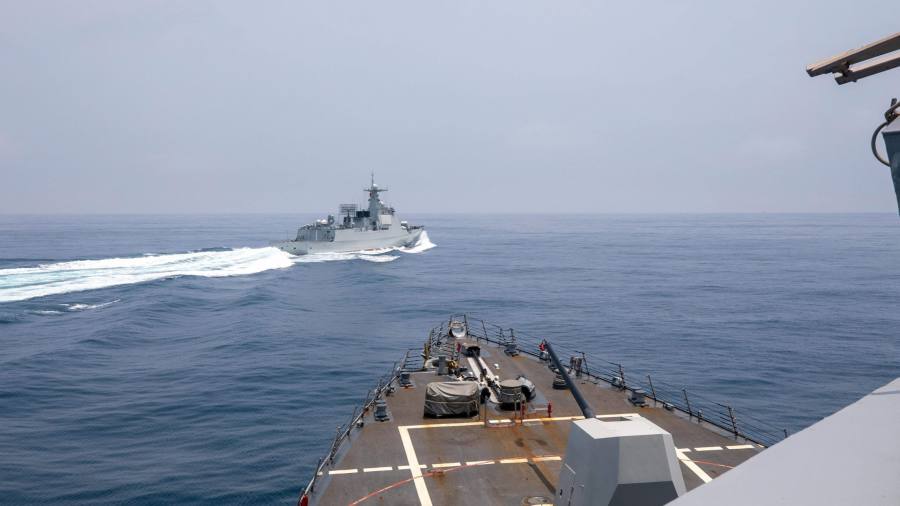Receive free Taiwan updates
We’ll send you a myFT Daily Digest email rounding up the latest Taiwan news every morning.
The US will provide Taiwan with $345mn in weapons, marking the first time the Pentagon will send arms directly to the country to boost its defences amid rising concern about assertive Chinese military activity.
The White House on Friday announced its plan to provide weapons from US stockpiles in the first tranche of an annual $1bn “presidential drawdown authority” Congress approved last year to support Taiwan.
Successive US administrations have approved the sale of weapons to Taiwan. But this is the first time the arms have been directly provided under the PDA — the same authority that the Biden administration has been using to send weapons to Ukraine.
The move comes as concerns rise in Washington about activities that the Chinese People’s Liberation Army is conducting in the waters and airspace around Taiwan. It triggered a protest from China, which claims sovereignty over the island.
“China is firmly opposed to US’s military ties with and arms sales to Taiwan,” said Liu Pengyu, the Chinese embassy spokesperson in Washington.
“US . . . stop selling arms to Taiwan, stop creating new factors that could lead to tensions in the Taiwan Strait and stop posing risks to peace and stability in the Taiwan Strait,” Liu added.
The administration did not specify what weapons it would provide, unlike when it gives US defence companies permission to sell arms to Taiwan. But one official said the package would include anti-armour and air defence capabilities.
The White House declined to say if the weapons would include MQ-9 reconnaissance drones, but the official said the package would include “multi-domain awareness” capabilities.
The Financial Times recently reported that the US, Taiwan and Japan had agreed that they would share real-time data from MQ-9 Sea Guardian drones, which are manufactured by General Atomics.
The arrangement would help the three countries create what is known in military terms as a “common operational picture” — a critical capability in the case of a conflict over Taiwan that would involve Chinese warships and submarines operating around the island.
The state department said the use of the PDA was “just another example of our continued commitment to help Taiwan maintain a sufficient self-defence capability, in line with our longstanding policy”.
“The secretary of defence and other senior leaders have been very clear that we do not believe an invasion [of Taiwan] is imminent or inevitable, because deterrence today is real and strong,” said a state department spokesperson. “The department is doing more than ever to ensure that it stays that way.”
Rupert Hammond-Chambers, president of the US-Taiwan Business Council, welcomed the move, but urged the Biden administration to step up and broaden efforts to help Taipei.
“Taiwan continues to raise the need to procure capabilities to deter a kinetic attack as well as address grey zone and blockade scenarios, highlighted post then-speaker [Nancy] Pelosi’s trip last August, greater available resources, including PDA, should press the Biden administration to adjust its narrow view of what Taiwan can buy and start to address the full scope of military challenges Taiwan faces from China,” said Hammond-Chambers.
Raja Krishnamoorthi, the top Democrat on the House China committee, welcomed the move by the White House. “Our . . . committee’s bipartisan recommendations on bolstering Taiwan’s self-defence called for expediting provision of critical tools for deterrence, and I applaud the important steps President [Joe] Biden has taken consistent with those recommendations.”
Michael McCaul, the Republican head of the House foreign affairs committee, welcomed the “much-needed” weapons package, saying it was necessary as “China eyes further aggression” against Taiwan. But he accused the administration of “pandering” to Beijing by not more aggressively expediting the approval of weapons for Taipei.
The notification came hours before defence secretary Lloyd Austin and secretary of state Antony Blinken were due to announce measures in Australia with their counterparts to boost deterrence in the Indo-Pacific.
Follow Demetri Sevastopulo on Twitter
Credit: Source link











